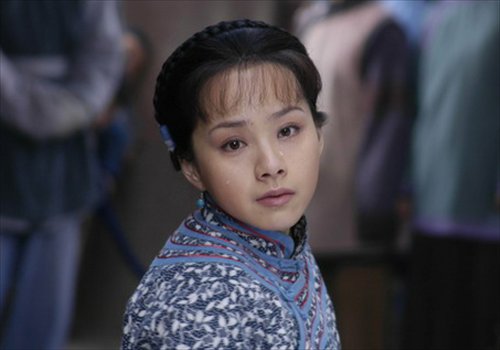HOME >> ARTS
A behind-the-scenes look at the International Emmys
By Global Times - Media & Entertainment Industry Reporter Source:Global Times Published: 2015-8-25 18:38:01

A still from Slave Mother Photo: CFP
The International Emmy Awards arrived in China on August 15 for another round in its summer-long semi-final judging. Co-hosted by the Beijing CTV Splendid Film and TV Corp, the event in Beijing, one of 25 host cities around the world, saw actor Zhang Xiaolong (The Legend of Zhenhuan) take a seat as one of the judges on the panel.
While China only really began paying attention to the International Emmys after Sun Li was nominated in the best actress category in 2013, the awards have been around for quite some time. Founded in 1973 by the International Academy of Television Arts and Sciences, the International Emmy Awards is meant to celebrate the best in TV shows produced outside the US.
TV studios from around the world register with the International Academy of Television Arts and Sciences as part of four regions: Europe, Asia and Pacific, South America and Africa.
Earlier in August Li Xunyu, director of Croton Media, had been invited by the Jerusalem-based Dori Media Group to act as a semi-final judge for the South America region. In an interview with Media & Entertainment Industry Reporter, Li laid out how the voting process works.
According to Li, the entire process was strictly confidential. Judges were not allowed to discuss shows with each other, reveal how they were voting or tell anyone outside the panel which shows they had seen. The formal judging took one day, with the panel watching an entire episode from each of the nominated dramas (the first episode of the first season for the most part) in addition to another episode submitted by the shows for competition. Judges scored each nominee based on concept and execution, adding these scores together as a final score. Concept includes whether the show is creative and original, whether the main themes are clear and the aesthetics of the show. Execution includes costumes and props, sound and whether the performances and editing efficiently present the show's ideas to audiences.
"In China, TV series are still a fresh idea. Domestic TV series have too many local elements, which acts as a cultural barrier. We still lack a successful work using the TV series model, so we have a difficult time promoting shows overseas," Li said.
Li concluded that the main differences between Chinese and Western TV series come down to costs and production models.
"While American and European companies tend to look for new creative shows when producing a TV series, Chinese companies find being different is too risky. It's hard to promote an edgy show and don't tend to bring in much profit to companies even if they are successful," Li explained.
Li believes that Chinese TV series will continue trying to take aim at younger audiences.
"In the past, the TV audiences studios tried to satisfy were mainly middle-aged or senior citizens. However, with the rise of new media, TV studios have started producing various content for social media users. Comedy dramas, which are popular among young audiences, have risen in position," said Li.
The final winners will be announced at the 43rd International Emmy Awards Gala on November 23 in New York City.
International Emmy Nominees: China
Best Performance by an Actress
2005 He Lin Slave Mother (winner)
2008 Yuan Zhibo Awaiting the Birth of the Husband
2011 Athena Chu A Wall-less World
2012 Sarina China Land
2013 Sun Li The Legend of Zhenhuan
Best Performance
2006 Lin Shen The Confession of Feng Qi
2007 Bobby Au-yeung Dicey Business
2008 Wang Chengyang Thei-go King and His Son
2009 Li Chen Ultimate Rescue
2012 Zhu Yawen Flying Eagle
2014 Wu Xiubo The Orphan of Zhao
Best TV Movie or Miniseries
2007 Toy Train
2008 Awaiting the Birth of the Husband
2009 Ultimate Rescue
Current Affairs & News
2012 China Dolls - Fragile Bodies, Strong Minds
Best Non-Scripted Entertainment
2014 MasterChef China
Global Times - Media & Entertainment Industry Reporter
Newspaper headline: Awards without borders
Posted in: TV